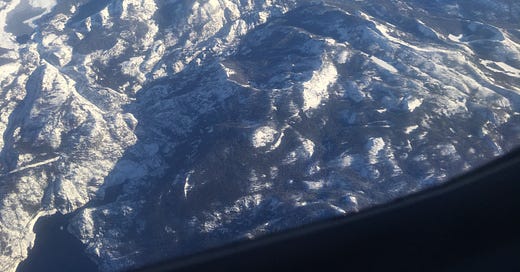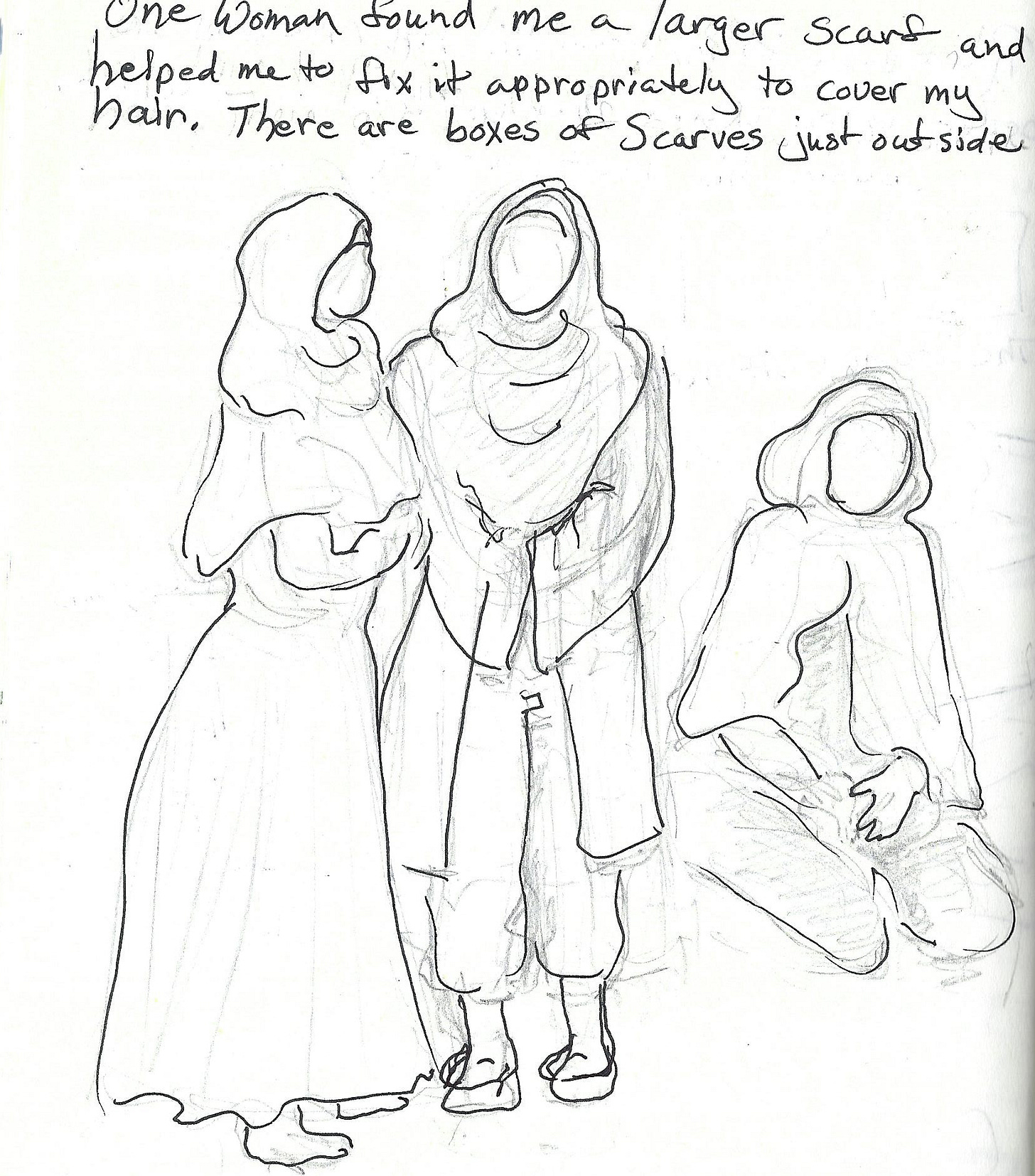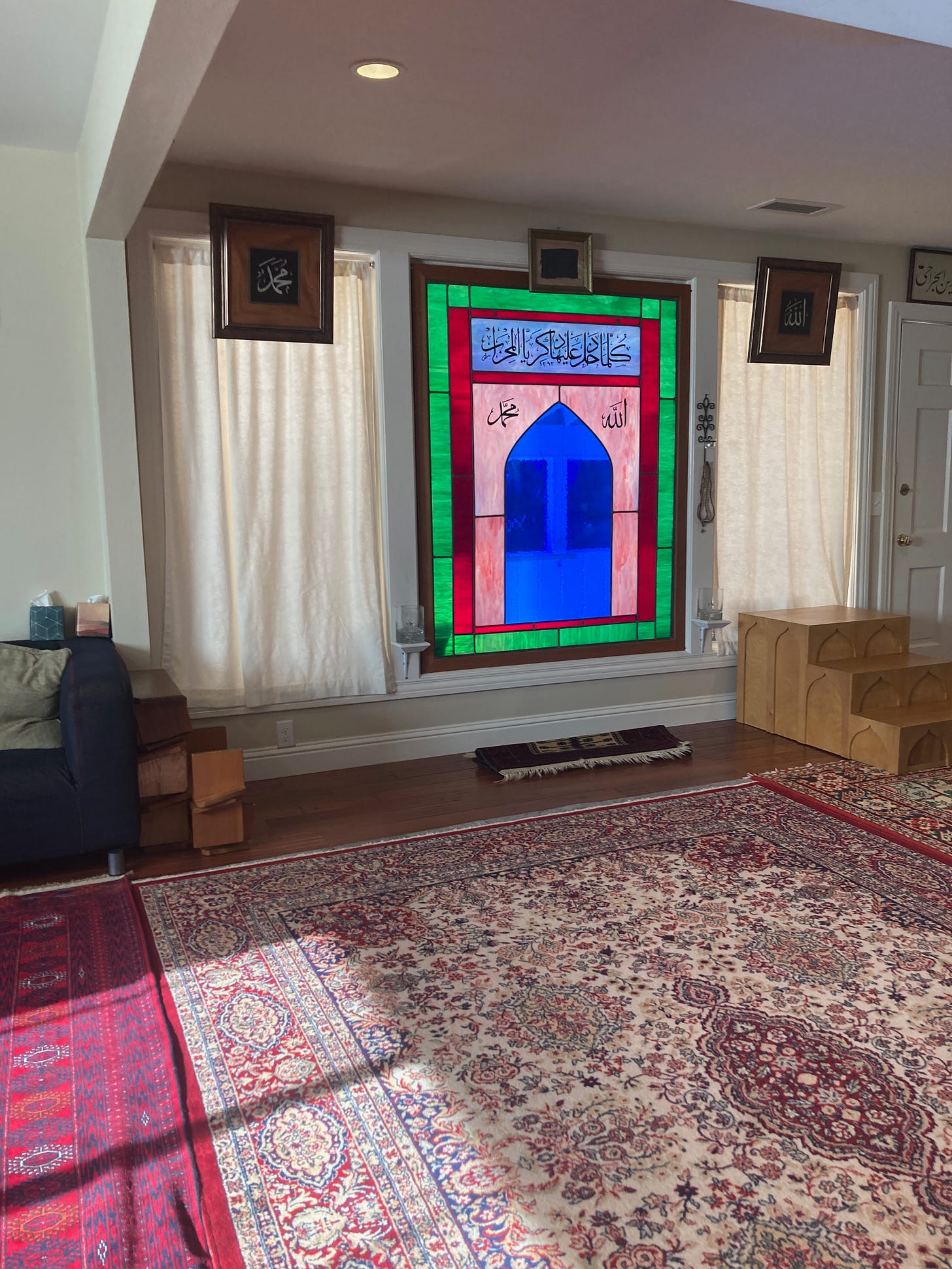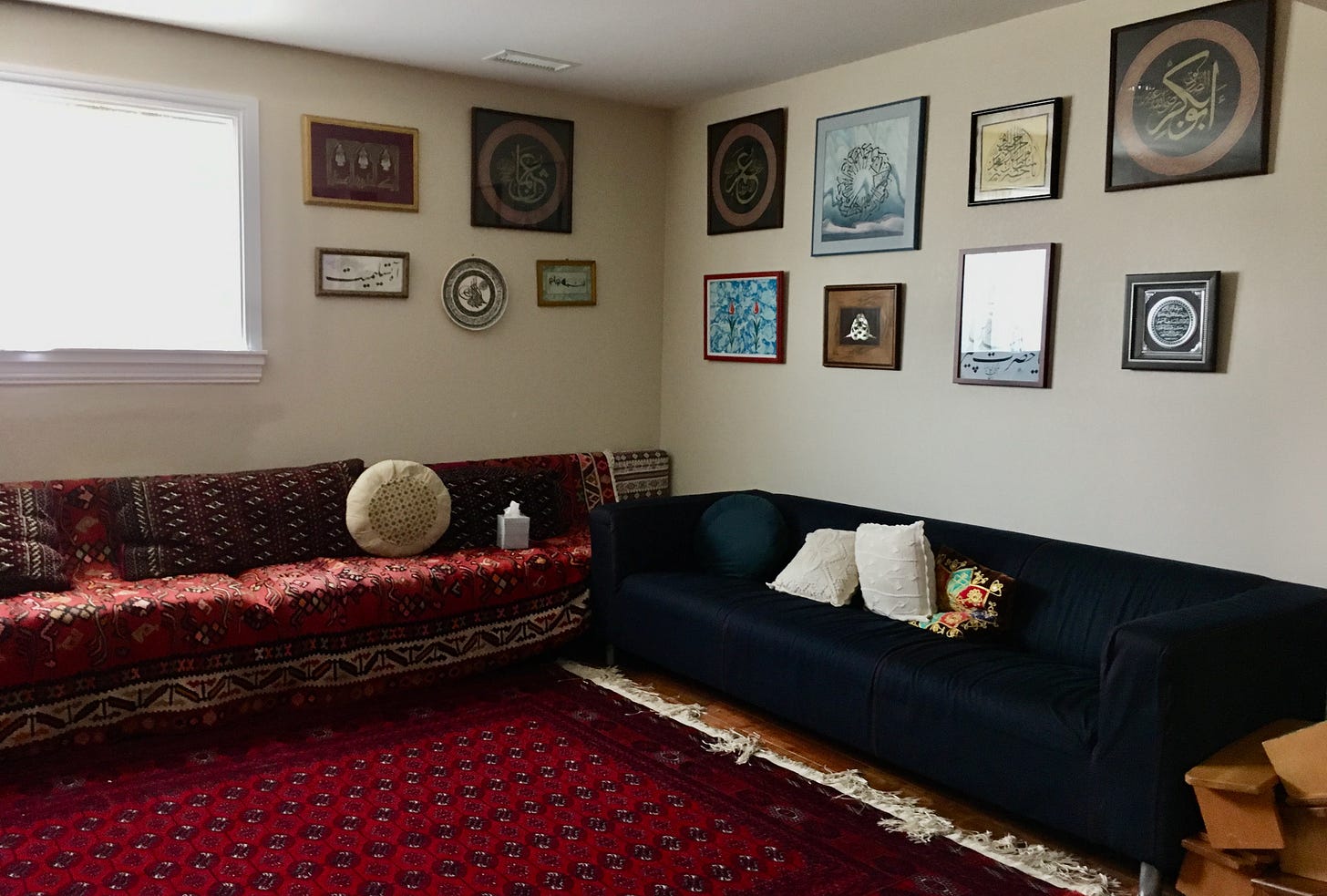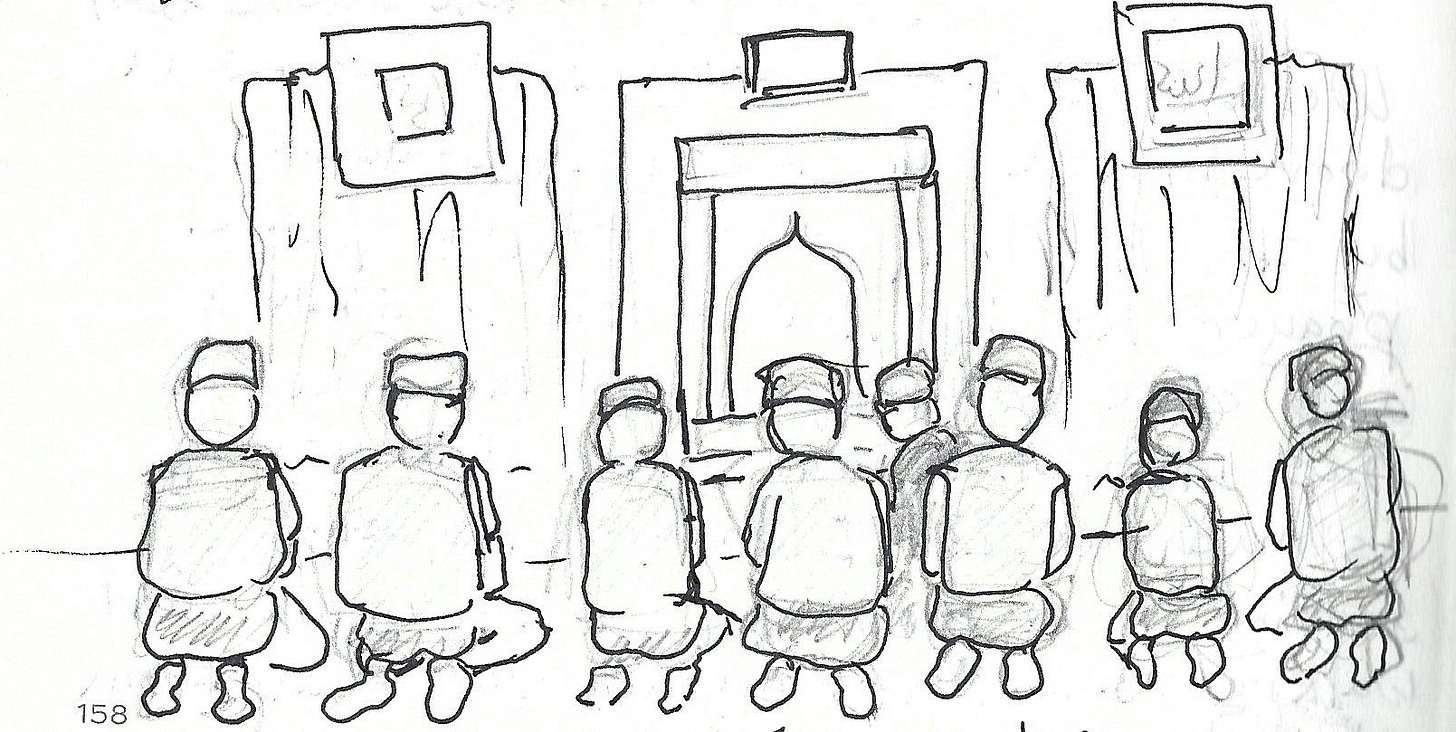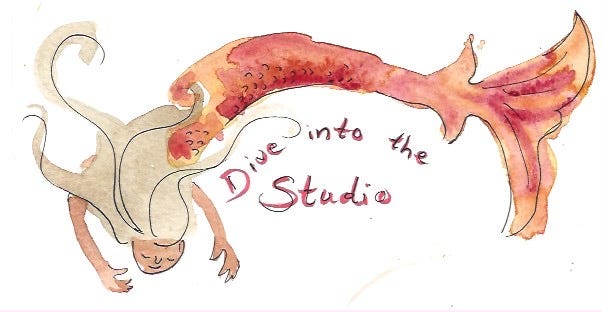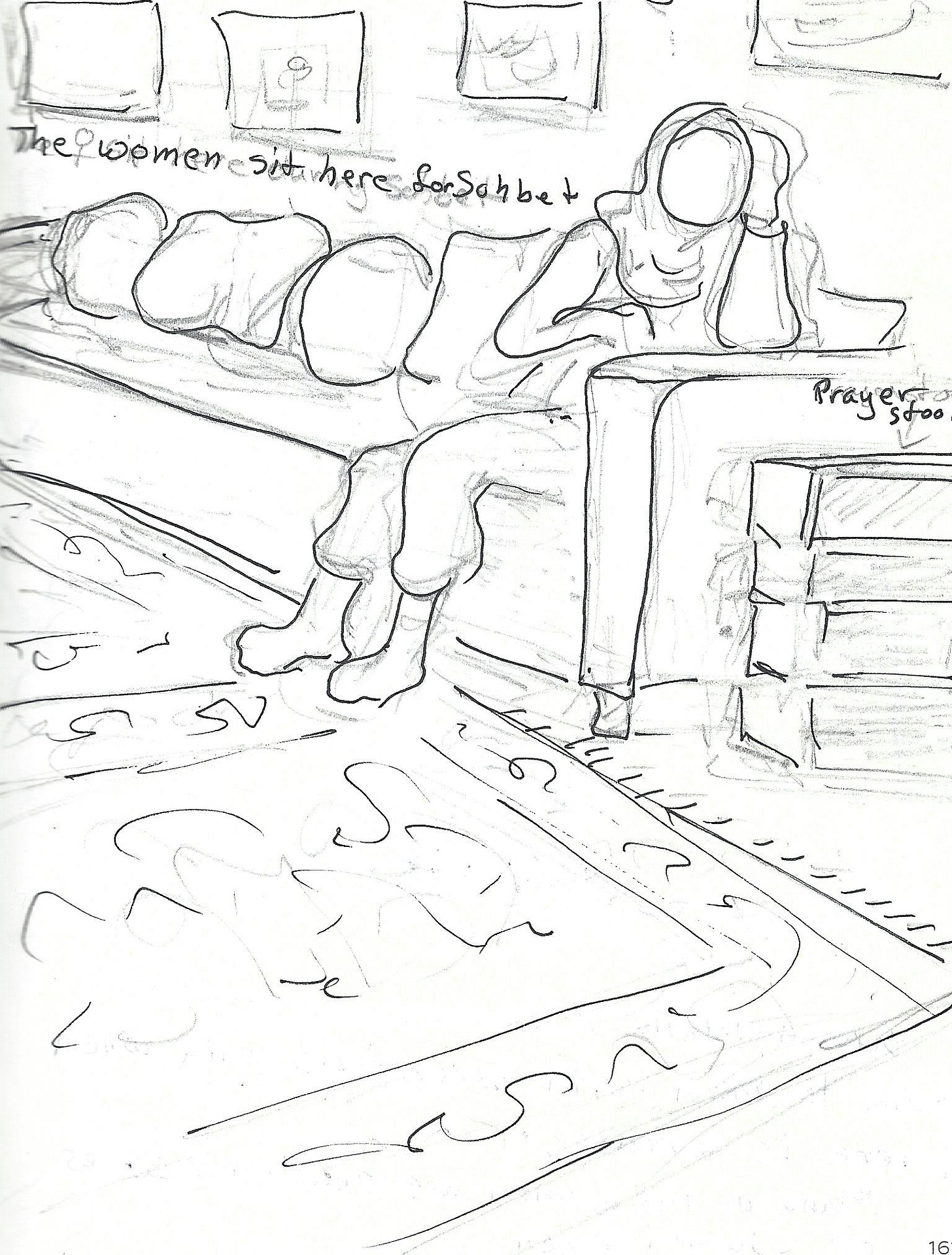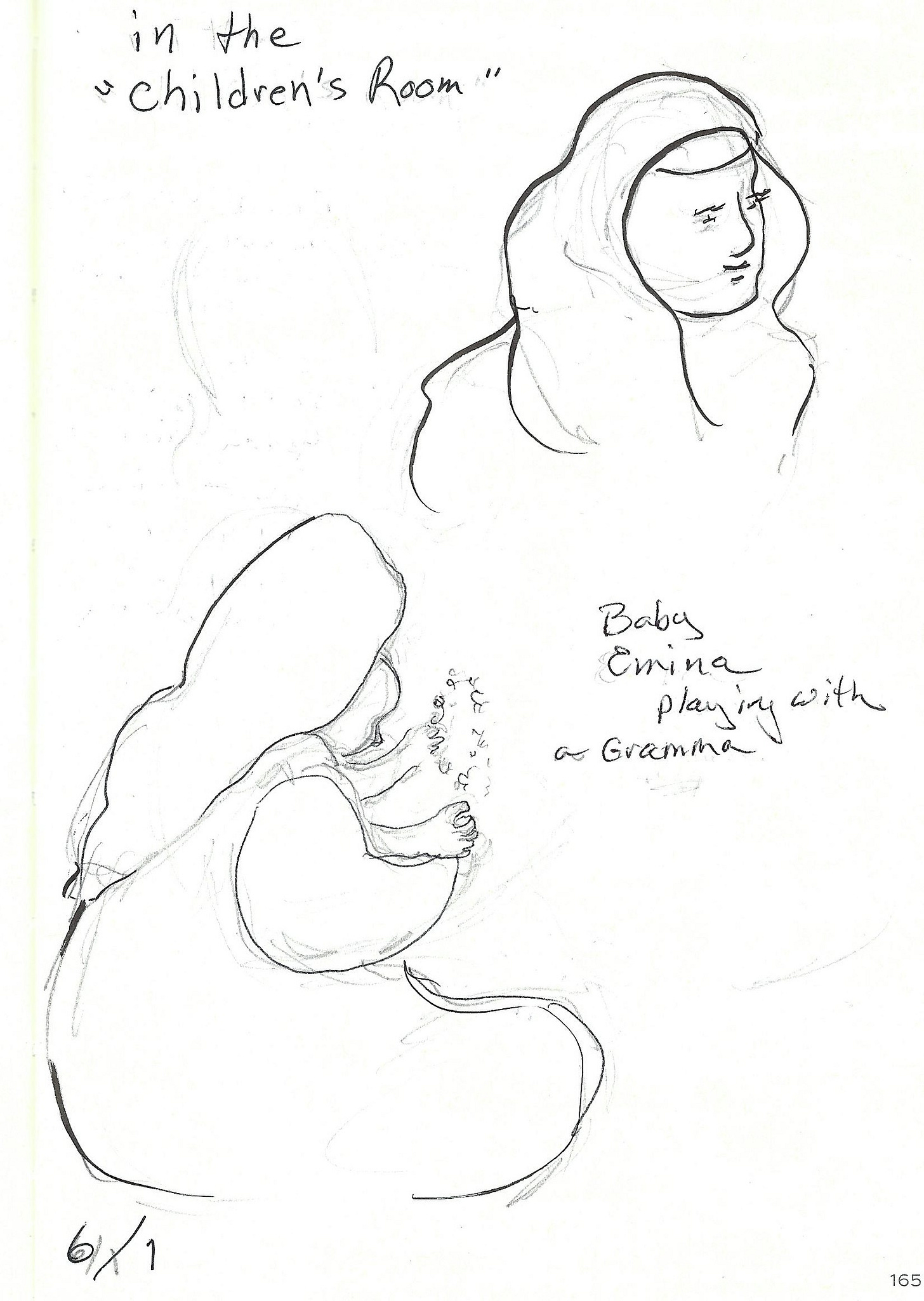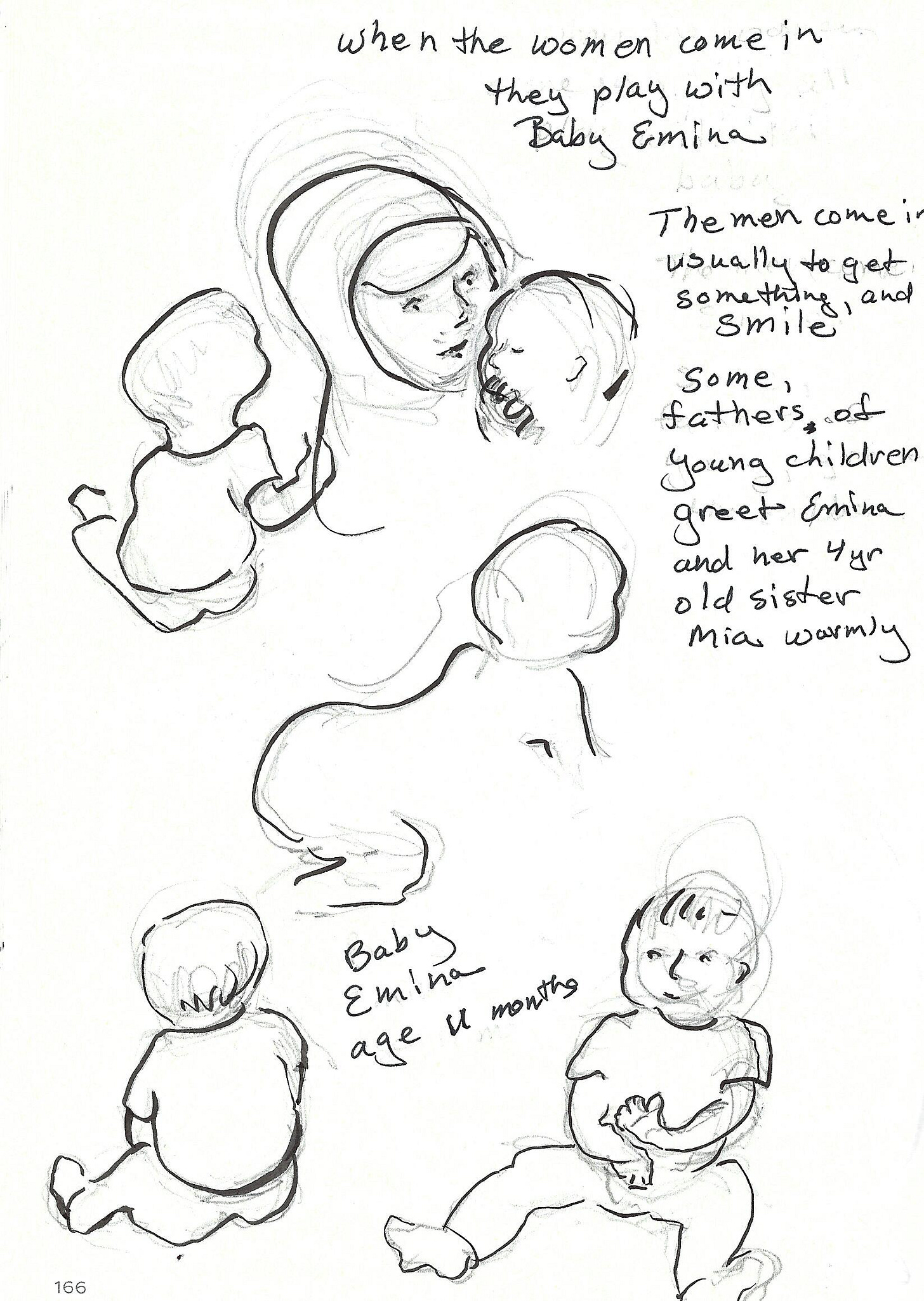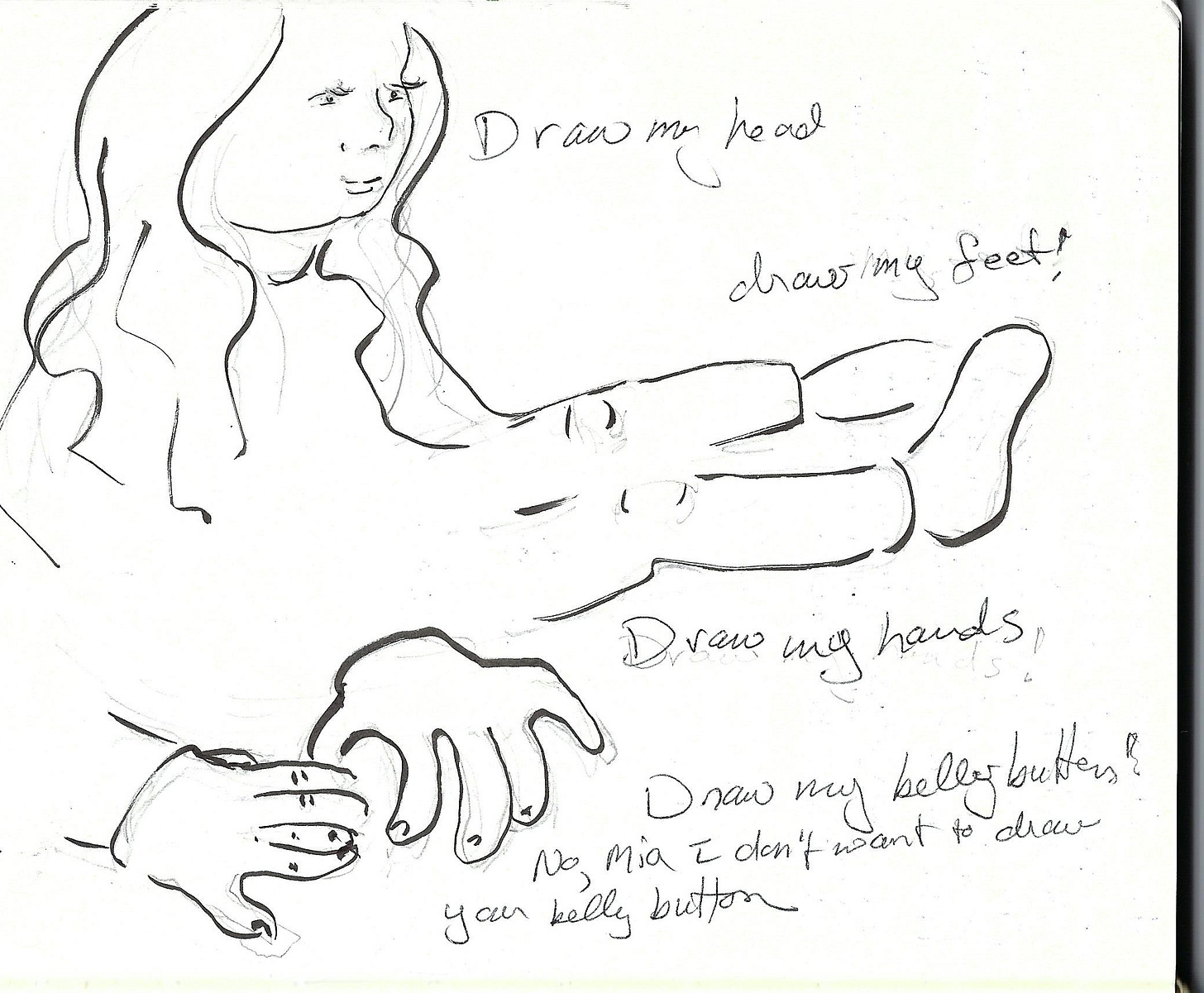Over the Mountains and Far Away
I married a American Sufi. Rich (his Sufi name is Rifaat) is a Sufi of the Helveti Jerahi order, based in Turkey. Through him I have met Sufi sheiks of several orders and found a tradition rich in love and the desire to be of service to humanity. The Sufi teaching that there are as many paths to the Divine as there are people resonates with my Quaker belief that there is "that of God in everyone". The new head of the Jerahi order, Ahmed Effendi, was visiting the US with an entourage of sheiks, dervishes, and family from Turkey, and would be in Redwood City, California, to visit the Helveti Jerahi dergah (community or place )there. Of course we flew down to see him!
In Redwood City, many of the community are from Turkey, either studying or working in Silicon Valley, and many are American born who joined the order as young men and women in the 1970's or '80's. Rifaat joined the order as a young man, impressed by the power of love emanating from the sheik. On this trip, he was looking forward to seeing friends he had not seen in decades, friends he had gone on Hajj with. (Hajj is the pilgrimage to Mecca required of every adult Muslim).
It was a long weekend. The Helveti Jerahi are a conservative sect.
All the women wear headscarves to cover their hair, long sleeves, and long skirts or pants. The prayers are formulaic, with the men in front and the women in back, all facing the stained glass window that represents the Qibla, the direction of Mecca
the Maydan, the room where prayers take place
Prayers, songs, and chants are in Arabic or Turkish. It was like stepping into a little piece of Turkey transported to California! Everyday the community had "breakfast" together between 11:00 am and 1:00 pm, and a Turkish dinner about 8:00 pm, or whenever Effendi was ready. Everyday and every evening there were community prayers, and every evening the Sheik held "Sohbet" for the gathering of 20-30 people. Sohbet is a spiritual talk or discussion, where the sheik gives a lesson and people have the opportunity to ask questions afterward. For this, the half dozen or so women sat together on a large couch,
and the men mostly sat on the floor, all a respectful 10-20 feet away from the Sheik (When the Rifai Sheik, Sherif Baba, comes to Seattle, men and women sit together where ever they can find a spot and very close to the sheik and his interpreter. Rifai is another Turkish sect of Sufism). The talk (in Turkish) was translated by Uduar Effendi, the Sheik of the Helveti Jerahi community in New York, who had accompanied him. Effendi spoke of the need for unity, to respect all people, all genders, all ways of being human.
I asked Rifaat to remind me what Effendi said. Rifaat remembered, "What I heard him say is that we perceive Allah as ...the unity of us all working together to create a more supportive society, that we all need to go out there and do something that is going to improve mankind .We are here to be of service to mankind, to help each other, to help the widows and to help the orphans. Give food to the poor, give them whatever they need."
I am not versed in Muslim Sufi prayer practice. My own fault, I know. I've been around it long enough through Rich and through my Muslim and Sufi friends. Not all Sufi orders have the same rituals, but there is a standard prayer, the Fatiha, in Turkish, and a standard sequence of bowing, standing, and kneeling that traditional Muslims of any sect follow.
My auditory memory has so far refused to retain the Fatiha except for a few phrases, and has trouble with the repeated chants if they are more than a few words in Turkish or Arabic.
I do try to participate, following the hand motions if not the words; I believe that God hears every prayer in every language. I try to follow the standard prayer form, with it's bowing, it's "Allah Akbar" (God is Great—who can disagree with that?), it's prescribed standing, kneeling, and bowing, and the part where you put your head to the floor that looks like child's pose in Yoga.
Saturday, I stood behind about 30 men and a dozen women for the community prayer, all facing the stained glass window.
The Imam quoted some of the Quran in Arabic, and a cantor sang, in Arabic or Turkish. Sometimes all the men sang or chanted together. It was quite beautiful! I could feel in my bones the devotion to the God of Abraham, who calls us to love our fellow humans.
Standing there, I could feel how people in so many if not all religious traditions have this same devotion to the Great Mystery, however they perceive it. Yet there is all this violence between people who do not see the Divine in the same way. I thought particularly of the violence in Gaza, Palestine, Israel. Oh how God must be crying to see her children fighting so!
There was a lot of down time, waiting for Effendi. Often the men were outside visiting with him, while the women waited inside. I used the time to sketch.
Waiting for Effendi
I spent some time in the “Children’s room”, doing gesture drawings and talking with the women.
Drawing four year old Mia
Helveti Jerahi —a brief history
The Heveti Jerahi order of America. This is where the Uduar Effendi is Sheik.
*Learn more about the Rifai order here.
*Hajj is a pilgrimage to Mecca, required by every adult Muslim who is able to do so, at least once in their lifetime. Learn more here.
*The Fatiha is the first sura (chapter or verse) of the Q’uran, and is a very important prayer in Islam. Here is what it looks like and sounds like in Arabic.
*Here is a translation of the Fatiha into English.
*This site explains some of the tenants of Sufism. I particularly like this quote:
“If Islam recognizes one central truth, it is the unity of being, that we are not separate from the Divine. This is a truth that our age is in an excellent position to appreciate—emotionally, because of the shrinking of our world through communications and transportation, and intellectually, because of developments in the sciences. We are One: one people, one ecology, one universe, one being. If there is a single truth, worthy of the name, it is that we are all integral to the Truth, not separate. The realization of this truth has its effects on our sense of who we are, on our relationships to others and to all aspects of life. The essence of Islam is about realizing the current of love that runs throughout all life, the unity behind forms.”

